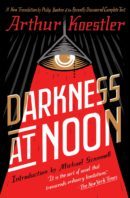Be Like Vlad
Back in 1992, the sports drink Gatorade aired a commercial featuring basketball legend Michael Jordan, and called on fans to “Be Like Mike”. Jordan was a role model to young people for his brilliance and discipline on and off the court. I argue in this post that we should all aspire to be more like Russia’s Vladimir Putin, in that he excels at planning ahead, and anticipating threats to his goals.
Putin is not exactly a lovable character. He craves power a bit too much, has a penchant for poisoning people he doesn’t like, starting armed conflicts, and invading countries. Most recently, he used cyber and other “influence operations” to interfere (again) in America’s 2020 elections, according to a March report by the Office of the Director of National Intelligence. So, yes, he’s the textbook definition of a bad guy for us in the West.
But that is precisely a key takeaway here. In life, people who lie, cheat, and want to impose their will on others must develop an uncanny ability to anticipate adversity, or they will not last on the scene. Anticipation and preparedness are good practices we can adopt from those we consider evil.
It was George Washington who once said: “It is unfortunate when men cannot or will not see danger at a distance; or seeing it, are restrained in the means which are necessary to avert, or keep it afar off.”
Putin’s main goal is simple – staying in power as long as possible. Everything he does is meant to advance that goal, and to anticipate and overcome any challenges along the way. So what does he do well?
Assess the intent and capability of others. Putin is someone who arguably knows us better than we know him. He’s unscrupulous, while we are keen on protecting the rights of individuals. You don’t have to be a bad guy to appreciate the ability to identify and understand adversaries and allies well enough to anticipate their next moves. In business and leadership it is important to understand our competitors and friends – only then can we think of ways to outmaneuver or rely on them. Most CEOs of Fortune 500 companies who keep their jobs for a long time rely on this skill.
Be on the offensive: The old adage that the best defense is a good offense is something Putin lives by. This explains why he goes to great lengths to silence dissenters at home and abroad. Most recently, Putin’s government changed laws to more easily brand media outlets, even bloggers, as “foreign agents” and force them to reveal if they receive financing from Western countries. By interfering in elections Putin aims to make America more troubled at home and thereby less focused on him. In business the same applies. It is better to keep competitors on their toes with our own moves than to be playing catchup.
Think ahead. Staying in power requires you to create a path forward, years in advance. That is why Putin recently changed the constitution to make it possible for him to continue to rule until 2036 (when he would turn 84 years old). Regardless of what we do for a living, we must carve out a career path and do and learn things so we can remain successful and relevant well into the future.
Give people what they want. Plenty of Russians miss the extinct Soviet Union and the power exercised by its leaders. Which is why Putin has a tendency to publicize stunts of himself hunting and riding horses shirtless, diving in a submarine in the Black Sea, flying planes, and playing hockey. His supporters also want Russia to gain increasing control and influence over countries that used to make up the old USSR. The best way for us to succeed is to understand what our bosses and clients want and give it to them. Yes, leadership often requires giving people what they don’t want, but any tough medicine goes down slow, and must be sugarcoated first.
If you take nothing else away from this post, remember that in life we can learn a lot from heroes and villains.
What I’m (Re) Reading
 While we’re on the subject of Russia, I should mention I am in the middle of reading the novel Darkness at Noon by Arthur Koestler, first published back in 1940. The book is set during the Great Purge of the Stalinist era in the Soviet Union, and follows the last days of the fictional Nikolai Rubashov, a party apparatchik who falls in disgrace and is imprisoned.
While we’re on the subject of Russia, I should mention I am in the middle of reading the novel Darkness at Noon by Arthur Koestler, first published back in 1940. The book is set during the Great Purge of the Stalinist era in the Soviet Union, and follows the last days of the fictional Nikolai Rubashov, a party apparatchik who falls in disgrace and is imprisoned.
The book gives us a window into the disillusionment and crude reality of folks who displayed absolute loyalty to a communist ideal, only to realize in the end that the regime they defended turned on them when they were no longer useful. As he endures prison and fears death, Rubashov comes to terms with the idea that “the rules of ‘fair play’ can be used in tennis, but not to make history.”
The novel has long been considered and anti-USSR and anti-Stalinist work. In fact Koestler once famously supported the efforts of the Information Research Department, the UK’s anti-communist propaganda unit. This tidbit aside, the reality the novel depicts is not too far removed from Putin’s current regime.

Share this